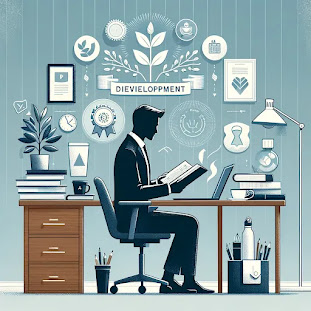Self-Improvement and Personal Development:
A Journey
to a Better You
Introduction
In today’s fast-paced world, self-improvement and personal development are not just buzzwords but essential tools for thriving in both personal and professional spheres. This blog explores the multifaceted journey of self-improvement, offering practical strategies and insights to help you embark on a fulfilling path toward personal growth.
Understanding Self-Improvement
What is Self-Improvement?
Self-improvement refers to the process of enhancing one’s
skills, knowledge, and character through conscious efforts. It's a lifelong
journey that involves setting goals and striving to be a better version of
oneself.
The Importance of Personal Development
Personal development empowers individuals to take control of their lives, pursue their aspirations, and realize their full potential. It contributes to improved mental health, increased confidence, and better relationships.
Key Areas of Self-Improvement
Mindset and Attitude
A positive mindset and attitude are the foundation of
personal growth. Cultivating a growth mindset, where challenges are viewed as
opportunities to learn and improve, is crucial.
Example:
Emma, once afraid of public speaking, adopted a growth
mindset. She started viewing her fear as a chance to grow. Gradually, by
speaking in smaller groups, she overcame her anxiety and became an adept public
speaker.
Skill Development
Continuously learning and upgrading skills is vital in a rapidly changing world. This could mean improving professional skills, learning a new language, or even picking up a new hobby.
Lifelong Learning:
Mark, a graphic designer, enrolled in coding classes to
diversify his skill set. This not only expanded his job opportunities but also
ignited a new passion for web development.
Health and Wellness
Physical and mental health are integral to personal
development. Regular exercise, a balanced diet, mindfulness practices, and
adequate sleep are essential components.
Emotional Intelligence
Developing emotional intelligence involves understanding
and managing your emotions and empathizing with others. It enhances
communication skills and relationships, both personally and professionally.
Time Management
Effective time management is key to personal productivity. Prioritizing tasks, setting achievable goals, and eliminating distractions can lead to more efficient and stress-free living.
Strategies for Personal Development
Goal Setting
Set clear, achievable goals. Use the SMART criteria
(Specific, Measurable, Achievable, Relevant, Time-bound) to outline your goals
for a structured path to improvement.
Building Habits
Focus on building small, sustainable habits rather than
making drastic changes. Consistency is more impactful in the long run.
Seeking Feedback
Constructive feedback, whether from peers, mentors, or
through self-reflection, is invaluable for personal growth. It provides a
different perspective and areas for improvement.
Overcoming Challenges
View challenges as stepping stones rather than obstacles.
Embrace failure as a part of the learning process.
Finding Mentors and Role Models
Having a mentor or role model can provide guidance,
motivation, and support. They can offer valuable insights based on their
experiences.
Conclusion
Self-improvement and personal development are ongoing
processes that require commitment and perseverance. By embracing a positive
mindset, continuously learning, maintaining your health, and effectively
managing your time, you can make substantial progress in your journey towards
personal growth. Remember, the path to self-improvement is unique for everyone.
Celebrate your victories, learn from your setbacks, and always strive for a
better and more fulfilling tomorrow.




.jpg)

0 Comments